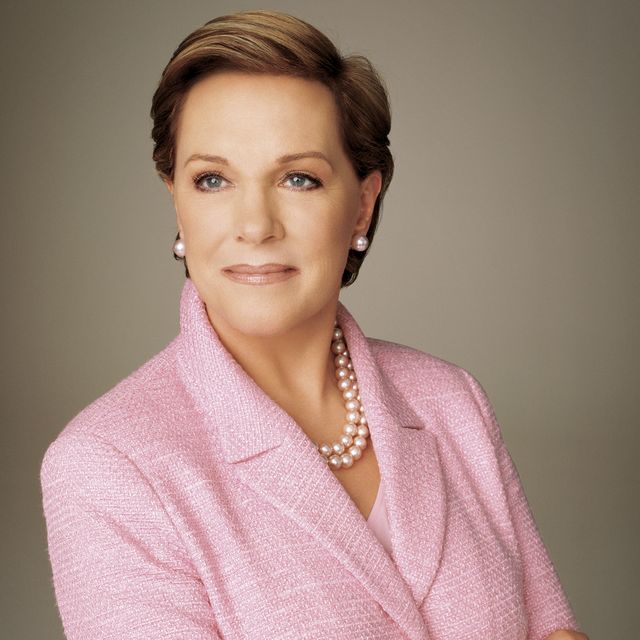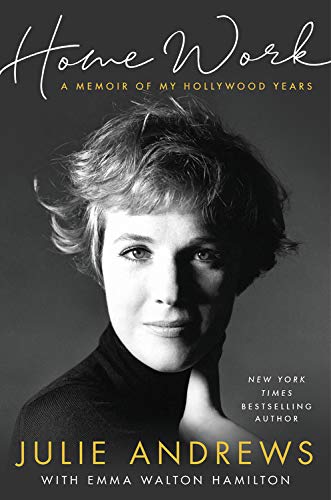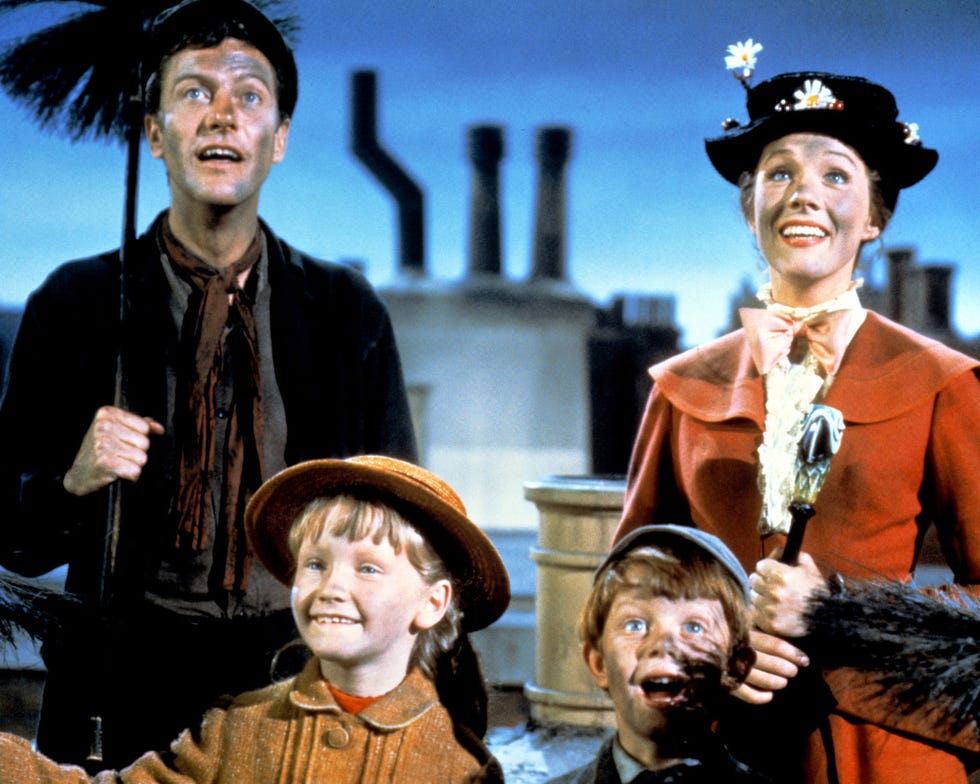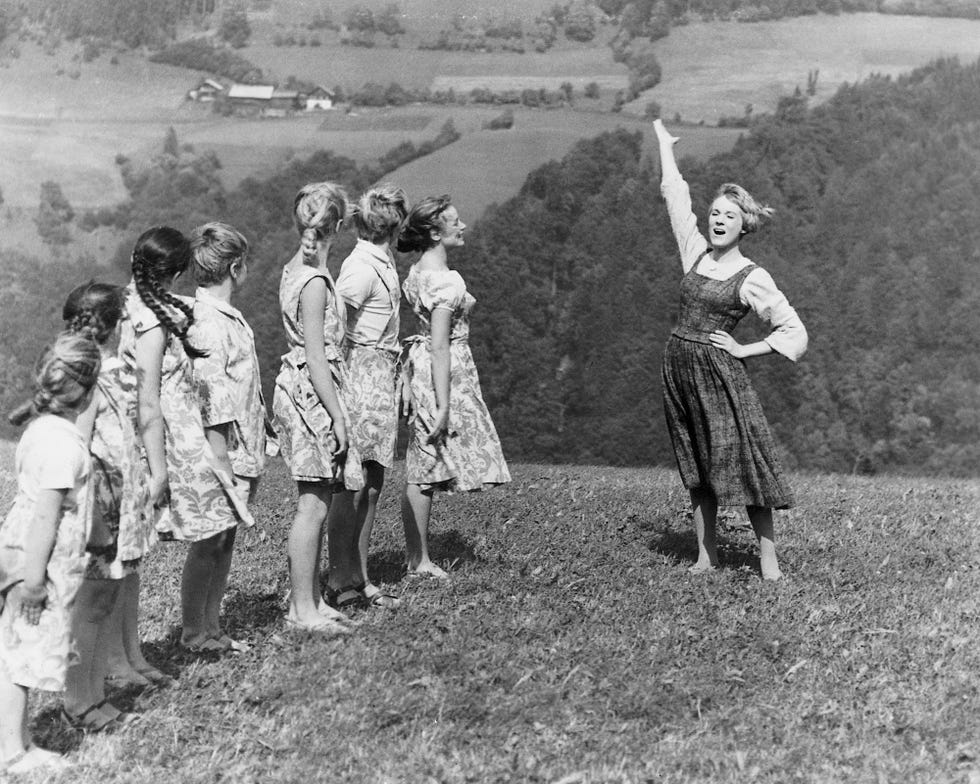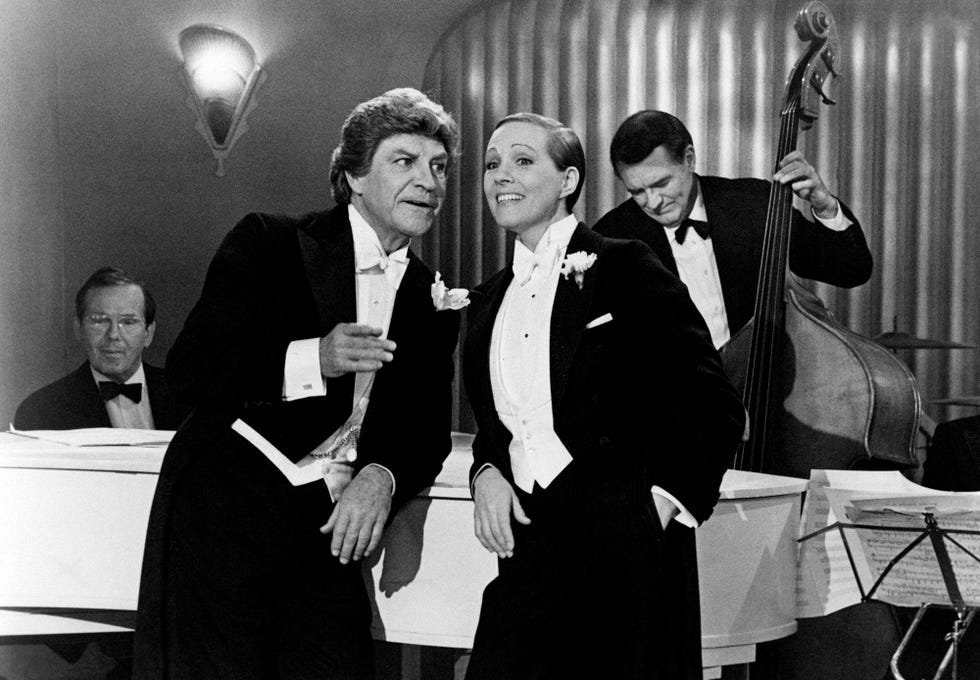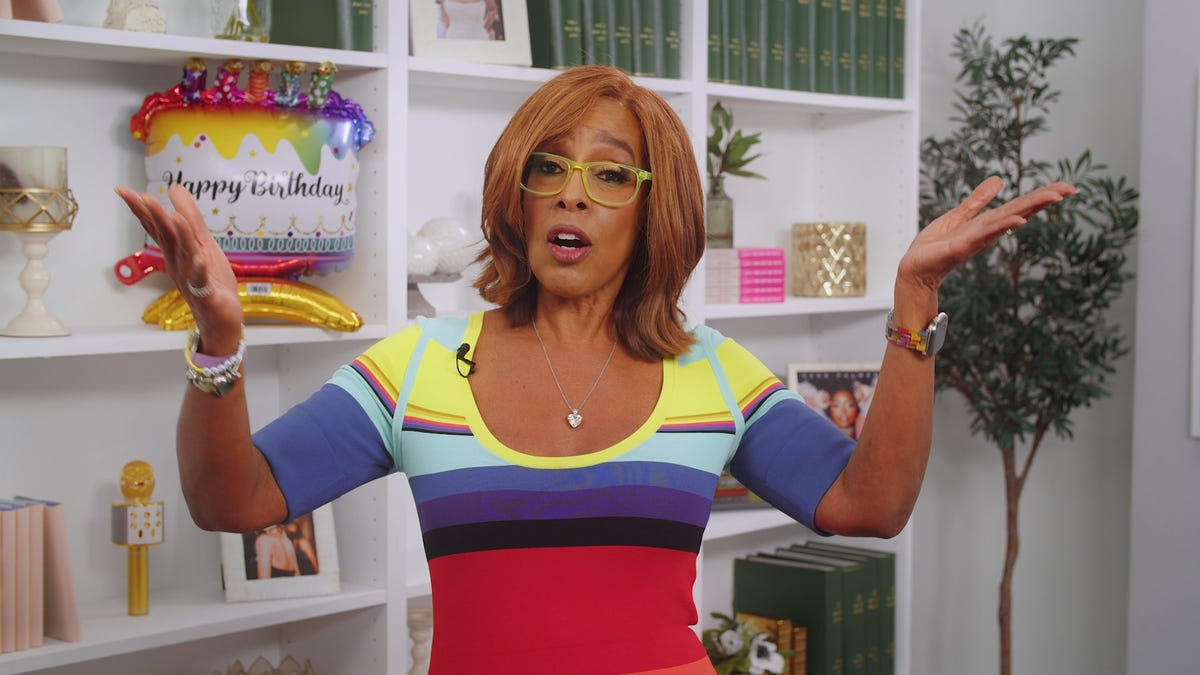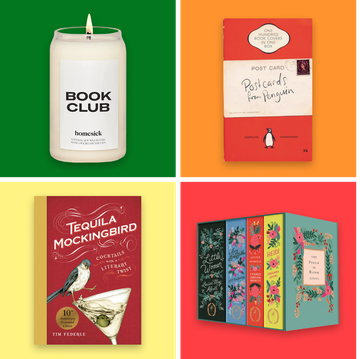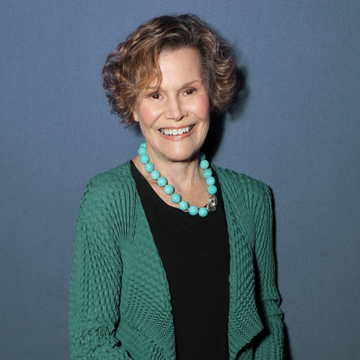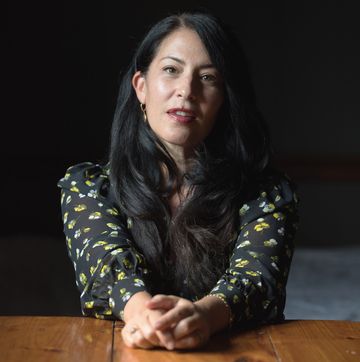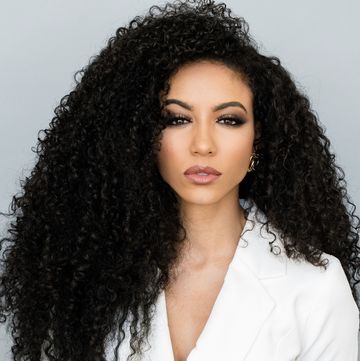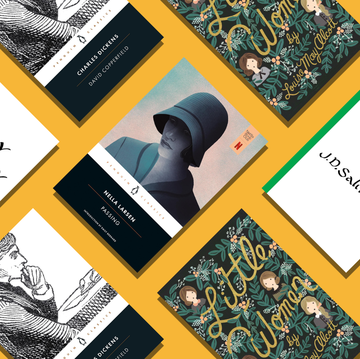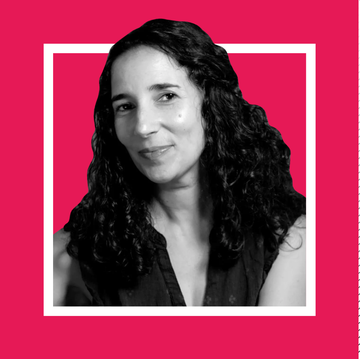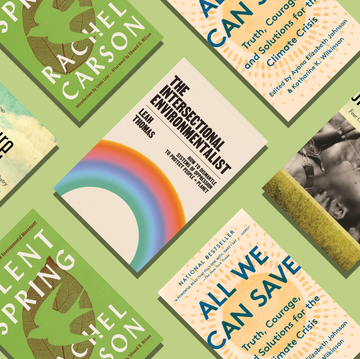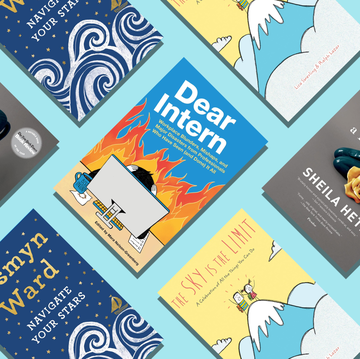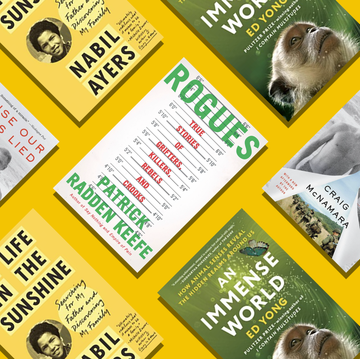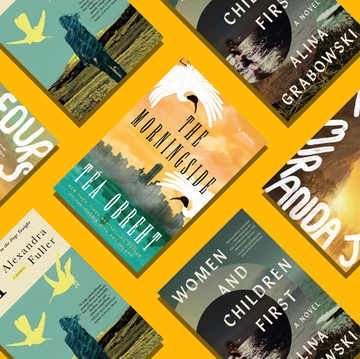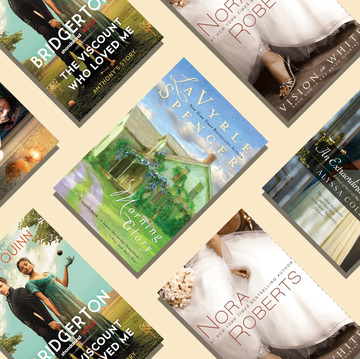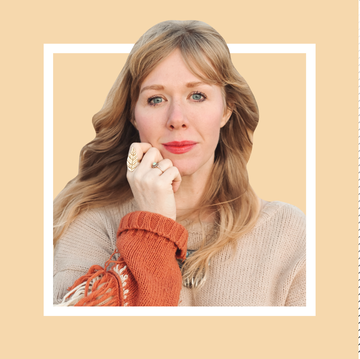I’m old enough to remember going to see Mary Poppins at the movie theater in 1964, and I still know the words to every song from that supercalifragilisticexpialidocius movie. Not only did I see The Sound of Music at the movies a few years later, but my parents played the soundtrack so many times, I also still know that by heart. Of course, by then, I’d already fallen in love with Julie Andrews. It was impossible not to.
Her new memoir, Home Work—out now—is a quiet revelation. And by quiet I don’t mean dull. The book is packed with emotion, action, gossip, and fascinating tidbits about craft. The Julie Andrews we get to know is salty, funny, passionate, hard-working, gracious, and above all, a brilliant vocalist and actress who has braved many disappointments, including the death of her beloved husband and the loss of her singing voice. I was lucky enough to have the opportunity to chat with her on the occasion of her new book’s publication.
I devoured every single word of Home Work. And your memory was supported in putting it together by the diary you kept, right?
Over the years, writing in my diary has helped keep me sane. Things were coming at me so fast. I had to write them down to process them. And now I have the diaries to draw on for the book.
You started performing at a very young age—you didn’t have much of what we think of as a childhood. Your parents didn’t provide a lot of stability.
(Laughs) Well, it was a very unusual childhood, that’s for sure.
What did you take away from it?
A lot of experience I didn’t realize was valuable, at the time. I did wonder when I was endlessly touring around in vaudeville, what was the good of it? What was the point? Was I just going to keep doing that for the rest of my life? But then years later, which I talk about in the book, when I began filming on Mary Poppins, all the things that I’d learned in vaudeville came into play. I could sing all those wonderful songs, the ones where everyone kicks up their heels, like Supercalifragilistic, because they did have a slightly vaudevillian flavor. And I felt I could embrace and use my experience. It seems nothing is really wasted in life, although you think it might be, at the time.
When did you first realize how extraordinary your voice was? You had such a pure soprano that at times, you write, only dogs could hear it…
When it really started to work was when I began training with my superb teacher, the wonderful Madam Stiles-Allen. And she was my singing instructor for many years. Her encouragement and the work I did with her—which was pretty intense—gave me a sense of assurance. But more than anything, with all that was going on in my life; my singing voice gave me an identity that I could hold onto. Everything else—touring, my family—was rather chaotic, but I had the discipline of singing, and the realization that it was a gift. That helped me feel calmer and very grateful.
I loved the way you described how you handled not getting the My Fair Lady movie role, and how you’d drive by the studio where it was being made and wave. At one point, you realized that if you’d gotten that role instead of Audrey Hepburn, you would not have been able to do Mary Poppins. The timing wouldn’t have worked.
That’s right. It’s very hard to be upset about not getting My Fair Lady when Walt Disney comes along about three months later and says, “Would you like to come to Hollywood and do Mary Poppins?”
And Walt Disney was really supportive and kind to you—you had a lovely relationship with him…
Yes, we did have a lovely relationship, and he had a persona that was very...I think I’d describe him as sort of avuncular and friendly, and very dear to me, particularly. He had a tremendous gift for spotting talent. As I say in the book, I think, people didn’t last very long in those days at Walt Disney Studios if they weren’t decent, nice people. The angry ones, or the disturbed ones, very quickly disappeared and it was really a pleasant lot and a wonderful way to begin learning about movies.
You had some sense as to how big Mary Poppins could become because it was Disney, but on the other hand you were learning on the job, not thinking too much about the outcome.
I don’t know if anybody knows right away that something is going to be enormously successful. I certainly don’t think anyone at the time we were making Poppins thought that, either. You just put your head down, dig in, and learn. I was so green, so I couldn’t even begin to predict that it might be successful. I knew that it was great fun and that it was done with great care, and that everyone involved in it was giving it their all, but I really had nothing to judge it by. So one just did the work. How lucky we were!
And I didn’t put two and two together about being a nanny in Mary Poppins and being a nanny in The Sound of Music until I read about how The Sound of Music gave you a little pause at first because you were reluctant to play a nanny again.
Yes, with the success of Mary Poppins, I didn’t want to be so typecast that nobody ever thought of me for anything else, you know? But it was a very different experience in every way. Because as I mentioned, I think, it was a whole different scale. It was, I think, Cinemascope, which Poppins wasn’t. Everything from the size of the cameras, the detail, and the pictures that the movie recorded, and everything about it was slightly raised, a little larger and bigger than Poppins had been.
Including the mountains of Austria, where The Sound of Music was filmed. Was Christopher Plummer impossibly handsome?
He was. He was dangerously handsome, I felt. He kept to himself during the days, but in the evenings, he loved to drink, as you probably know from his own biography. But, boy, working with him was great, and we did become close friends, and have been ever since.
Let me shift to your marriage with Blake Edwards. You fell in love with a man who was incredibly creative, and mercurial, and I guess the love of your life.
That just about sums it up, yeah….
And what changed for you after? Because it seems as if once you married Blake Edwards—those were the days when a woman would sublimate herself more than a woman today might. Did you feel like that?
Absolutely…Blake was the most charismatic, mercurial gentleman I’d ever encountered. Today when I reflect on him, I still miss him so dreadfully. They broke the mold when Blake was born. I hadn’t come across anybody with his wit and sophistication, which I relied on a great deal. He knew things I didn’t. He had a knowing way. At times he was extremely compassionate about other people—he could usually spot what it was that troubled somebody. He was also very, very difficult at times. And it was an interesting time for me because I was learning so much, not just about the business but about myself in therapy and about my husband….it was all this wild roller-coaster ride.
And do you think you adjusted your career expectations once you were with him?
Well, I can’t say what might have come along, because it didn’t since I was with him, and I did hope to do a lot of work together, in order to keep us together, and keep the family together. So I can’t say what would have been, but I suspect you may be right….things were beginning to finally come across my desk and scripts and offers and things…
I never thought of Julie Andrews as having a rebel streak, but you lived with Blake Edwards before you got married, which was very much ahead of your time, correct?
Do you think it really was? I’m not sure…I don’t know, it seemed to be going on with a lot of other people too. But yeah, I guess I certainly am a little bit of both. I think I’m a rebel, and then it takes me forever to make up my mind about things...I’m a true Libra.
And in the book you confess to using a lot of salty language I don’t think most people would expect from you.
When you’re touring around in vaudeville, in the old days, you hear quite a lot of it, and I was probably quite influenced by it. As I grew older, I grew a bit freer, and used my words a little more liberally. I was a bit prim and proper to start with!
You’ve had a wonderful friendship with Carol Burnett.
Oh my gosh, yes she is such a great chum! And you know, I’m the bad girl when we get together. She brings out the mischief in me, and she’s the quiet one. It’s very funny.
There is a particular incident involving Mike Nichols that you describe…
Yes! Carol and I were staying in a hotel. We padded down the hall in our pajamas and dressing gowns, waiting for Mike Nichols to come and have some hot chocolate or something—there was a big event that we were all going to do together the next day. As we sat in the darkened hotel hallway on the sofa in front of a bank of three elevators waiting for him, we started to feel rather foolish, and we thought Let’s do something to make him laugh. We decided to pretend we were making out. He’d called our room and said he was coming right down, so we thought, well, the first person off the elevator would be Mike. But it wasn’t.
It was the Secret Service!
Carol was the one who was mortified. She crawled behind the sofa and hid. She did! And I’m thinking What am I doing here, all by myself?
There’s so much delight in the book, but there’s also a constant instability about money.
Always. Blake was nothing if not generous, and wanted life when he wanted it. I guess he was a breed of guy that just loved and enjoyed. He was a Leo, so there you are. I wasn’t that way, and it scared the heck out of me. But it was very seductive, thinking we could afford whatever we wanted.
Do you have an all-time favorite leading man?
Oh no! All for different reasons, each one was delicious, I mean obviously James Garner, and Dick Van Dyke were so lovely, as were Chris Plummer and Max van Sydow.
And we were also very good friends. There was all that promiscuity going around in Hollywood, but I was very happily married, and so somehow we stayed friends longer because I wasn’t flirting around with all my leading men. Delicious as they were.
And that brings me to Victor/Victoria, where, your vaudeville experience really kind of converges with your film role. Tell me how you approached that role. I loved the movie so much.
Blake came home and said, “I’ve found a role that would be perfect for you. I just saw a German movie that I’d love to try to do.” But in those days, the themes of love and sexuality—homosexuality—was not possible to depict on film, although they might have been suggested. They weren’t brought out into the open. And that was what made Blake’s contribution very important. Because the whole film is about love.
The film is about love, but it also pushed the envelope in a lot of ways.
Well yes, it did at the time. I mean, since then there have a lot of other wonderful movies too, but ours was a great one to make, and it was especially amazing to do it as a musical, with great heart and beauty. It’s also incredible that it was shot entirely indoors. which gave it an intimacy and a warmth that we might not have had if we had gone outside.
In the book, you comment frequently on film techniques, and your fascination with them.
What I tried to convey was how everything came at me. I tried to convey what I was seeing, what I was learning, so the reader could understand.
Hollywood then versus now. Do you think that the changes that have evolved have been largely positive, or do you feel nostalgic about the way it used to be?
I think the #MeToo movement is ever present now and very important, and has changed a lot. There are certain things that you could not do today that one did, in the olden days, without even thinking about it. People are spotting things that could be hurtful, or incorrect—you just can’t write that way for film anymore. Remember in The Pink Panther, which Blake wrote and directed, Peter Sellers used to say “My little yellow friend.” That may have been “innocent” at the time, but it wasn’t correct. That kind of change is, of course, very positive.
When you lost your singing voice, which is still hard to wrap one’s brain around, you found solace in writing.
Yes, well that was just an extremely, acutely painful time. Not physically, but emotionally. The thing that I felt defined me, always, was that I was a soprano. I could sing. I loved it and had learned to enjoy it very much, and then of course it literally wasn’t there anymore. And I finally thought if I don’t do something else, I’m going to go crazy. Because I’m not one to ever just be idle. I’m far too curious and interested.
The things that crossed my path after I lost my singing voice enabled me to start a second career writing a memoir and the children’s books with my daughter—about thirty of them all together. It is an absolute joy to be in her company creating them, and it does sustain me. I try to include music in every way possible behind them, perhaps through a CD packaged into the books. I’ve also tried to also write musically. When I am writing, say, I ask myself, say, “Do I want a fanfare as the opening, or do I want a quiet, pastoral piece that builds something?”
For more stories like this, sign up for our newsletter.
Leigh Haber is Vice President, Books, Oprah Daily and O Quarterly. She is also Director of Oprah's Book Club.
